If You Uninstall a Game That You Payed for on Origin Can You Download It for Free Again

From country-of-the-art stadiums to dazzling opening ceremonies, host cities cascade unbelievable amounts of money into the Olympic Games. In the last eighteen years, millions of dollars spent preparing for the Games has easily turned into several billion and, every 4 years, the need to print the world looms fifty-fifty larger.
But this off-field competition has led to abandoned venues, the displacement of local residents and Indigenous folks, detrimental pollution and, of course, staggering debt. We're taking a await at some of the grievous ways the Olympics have impacted former host cities — even later on they pass the torch.
Inspired by the ancient competition held in Olympia, the offset modern Olympic Games were held 126 years agone in Athens, Greece, in 1896. These days, the Summer and Winter Games attract thousands of athletes from over 200 nations — not to mention billions of viewers.
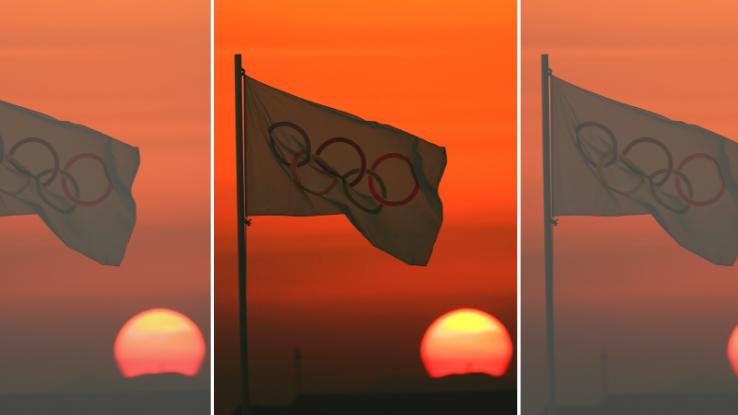
As such, host nations need to build the infrastructure, housing and venues to accommodate all of the spectators and athletes that the world'south foremost sporting event draws. To make matters more complicated, the Games are all about the spirit of contest, both on and off the pitch. That means the bid to outshine others has caused host cities to raise the bar — and, equally a effect, the pecker.
2008 Beijing Summer Games
In 2008, Beijing, China, hosted one of the well-nigh impressive Summertime Games on record. It's likewise the most expensive Summertime Games on record — and second-most expensive Olympics — with a $twoscore billion price tag. For comparing, Tokyo 2020, which was postponed due to the COVID-19 pandemic, has come in at $12.6 billion — although some sources claim the terminal price tag will actually be more than than double that corporeality.
So, what did all of that money go toward to prep for Beijing 2008? Lauded equally one of the greatest opening ceremonies in Olympics history, Beijing's kick-off event definitely took a large bite out of the budget. The Guardian noted that, betwixt the expense and pageantry, the ceremony "demonstrat[ed] to the world that the new Red china intends to make its presence felt." And felt it was — by a whopping iv billion viewers.

In improver to "wowing" the world with spectacle, Beijing too invested quite a scrap in infrastructure, creating the now-iconic National Stadium — nicknamed the "Bird's Nest" — as well as facelifting Chaoyang Park. In total, 9 temporary venues were constructed for the Games with the intention of existence torn down afterward.
Unfortunately, many of these "temporary" venues even so stand today, slipping further into disrepair. The overgrown Laoshan Bike MotoCross Park has reportedly become an unofficial customs garden. In 2022, Beijing will go the kickoff metropolis to host both the Winter and Summer Games, which means some venues could be repurposed and refurbished.
2004 Athens Summer Games
"Welcome Dwelling" was the motto of the 2004 Summertime Games — and Greece spared no expense when getting Athens ready for the unforgettable consequence. Ahead of the Games, media outlets, likeSports Illustrated and The New York Times, lambasted Greece. Meanwhile, sixty Minutes questioned the metropolis's condom — an interesting angle in the wake of the Atlanta Games, which were held two Summer Olympics prior.
Merely Hellenic republic carried on, constructing the Hellinikon Olympic Complex and other sports venues; a new international airport; a redesigned Athens Metro arrangement; several boosted tram and light rail systems; more pedestrian walkways; and the all-of import Attiki Odos highway. In the cease, the Olympics price Greece $9.95 billion.
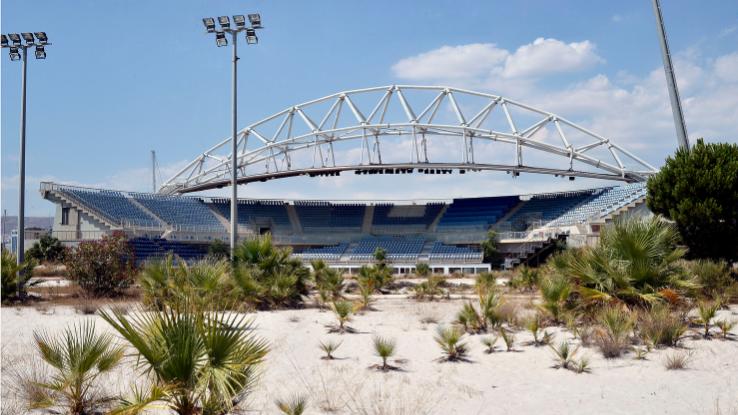
In addition to generating all of that non-sports-related infrastructure, the Games too helped boost Greece'southward tourism, with the number of visitors jumping to a record 16.17 million in 2007. And, at the fourth dimension, Athens was tremendously successful: the opening ceremonies dazzled and the venues massively impressed. Many of those media outlets issued "apologies," simply the negative printing alee of the Games did bear upon ticket sales, with tourists fearing that Athens was unsafe.
However, ahead of every Summer Games, media outlets all the same reassess the ill furnishings of the Olympics on Greece. In particular, media outlets connect the cost of the Olympics with the state'southward government-debt crisis. The cost of the 2004 Olympics was just a mere 4 percent of Greece'southward total debt.
Every bit for all those decomposable venues yous've seen pictures of? While some, like the softball stadium, did fall into disrepair, most have been repurposed into other sporting venues, grooming facilities, archives, low-income housing and more. Many of the "unused" venues became sites for temporary camps for refugees.
1992 Barcelona Summertime Games
The 1992 Summer Games marked the first Olympics since the terminate of the Cold War, meaning there weren't whatsoever boycotts for the commencement time in a while. To set up for ix,356 athletes, Espana poured roughly $9.four billion into the '92 Summer Games.
In total, the nation refurbished and synthetic 43 venues, but some of the cost went toward captivating dramatics as well. Archer Antonio Rebollo lit the Olympic cauldron by shooting a flaming pointer over the peak of it, igniting a colonnade of gas.

Moreover, the 1992 Summer Games gave Barcelona a reason to invest in infrastructure that would not only improve the lives of residents but also included features that would aid make the metropolis more than tourist-friendly every bit well. Billions of dollars helped to modernize the airport, construct ring roads and refurbish hotels.
All in all, the Barcelona Games were a whopping 266 percent over budget — a record at the time. Merely most believe this investment paid off, in a sense. The televised effect helped put Barcelona on the map, making it ane of Europe's nigh-visited cities. In fact, the showcase worked so well that Barcelona faces overtourism today.
1998 Nagano Winter Games
While many of the events took place in the nearby mount communities of Hakuba, Karuizawa, Nozawa and Yamanouchi, Nagano was meant to serve every bit the tourism eye for the 1998 Winter Games. A staggering ii,176 athletes from 72 nations competed at Nagano, setting a then-tape for participation.
In order to set for the spread-out Games, Nippon focused on improving its transportation network and edifice a new expressway. Most notably, the host nation constructed the high-speed train Shinkansen to connect Nagano, Tokyo and several other towns. When all was said and done, the Games came in at an alleged $10.v billion.

While locals would later do good from improvements to infrastructure, the investment worked a fiddling too well during the Games. The loftier-speed railroad train was so fast and so convenient that spectators chose to stay in Tokyo-based hotels, resulting in a huge loss for the newly renovated ski resorts in Nagano.
Despite the hit local hotels took, an impressive 1,275,529 spectators attended the Nagano Games, and 89.4 percentage of available tickets were sold. Television coverage of the Games increased by 55 percent — compared to the '94 Games — and a whopping 10.7 billion viewers tuned in over the sixteen-day stretch. Not a bad marketing entrada for Japan, right?
1988 Seoul Summer Games
The 1988 Summer Olympics in Seoul marked the last Games for both the Soviet Union and East Deutschland. While several nations — including North Korea and Cuba — boycotted the Games, Seoul was actually the most well-attended Olympics of the Cold War era with 159 nations and 8,391 athletes.
Before the Olympic bid was submitted, unelected coup leader Chun Doo-hwan became president of Republic of korea and was looking for ways to legitimize his rule and modernize the state. Using the 1964 Tokyo Games equally a blueprint, South Korea hoped the '88 Games would innovate the country to the globe.

Many of the city'south 31 venues were constructed merely ii years earlier for the Asian Games, which proved to be a vital test run for hosting the Olympics. According to Forbes, $iv billion was spent for the Seoul Games, while reported profits for the Games came in at just $300 million.
But Seoul wasn't without other, not-financial problems. According to an Associated Printing article, people the government deemed "vagrants" — in actuality, unhoused folks — were arrested and sent to encampments. Though a prosecutor visited the notorious Brothers Home camp, the authorities limited their access, fearing an investigation alee of the Olympics.
2000 Sydney Summer Games
Australia had the swell fortune — and added pressure — of hosting the Summer Olympics in 2000, which were dubbed the Millennium Olympic Games. Perhaps ahead of its time, Australia worked to minimize the Games' ecology touch, investing in venues built from sustainable materials.
Keeping in line with this "green attitude," the nation devised its first large-scale urban h2o-recycling organisation ahead of the Games to conserve h2o and energy. Meanwhile, the Sydney Olympic Park, the chief site of the Games, allowed the urban center to restore the land and create one of the largest urban parks in Australia.
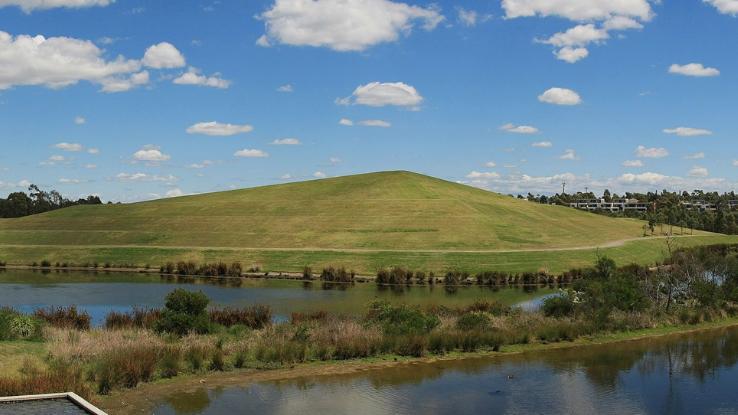
This refurbishment of Sydney'southward degraded state and focus on environmental practices came with a steep — but worthwhile — $3.8 billion cost tag. To this 24-hour interval, the water-recycling arrangement saves 850 million liters of drinking water annually, and the old Olympic Park has become a focal betoken for the urban center.
Although in the years that followed tourism to New Southward Wales didn't grow too much, the Games certainly improved Australian tourism on the whole. Despite locals' criticisms that the city overlooked infrastructure bug and the city's western suburbs, there'south no dubiousness that Sydney did an admirable task maintaining its venues at to the lowest degree.
2016 Rio de Janeiro Summer Games
When Brazil won the bids for both the 2014 FIFA World Cup and the 2016 Summer Olympics, the urban center of Rio de Janeiro saw these victories every bit an opportunity to re-invest in the city'due south infrastructure — a sort of "two for the toll of i" mindset. Infamously, things didn't quite work out for Rio.
The flagship Maracanã Stadium was originally built for the 1950 FIFA Globe Loving cup, though it had remained unfinished — meaning refurbishment would cost quite a bit. The host city besides invested in a $50 million aquatic center that was meant to be disassembled later on the Games. (So much for long-term investment, right?)
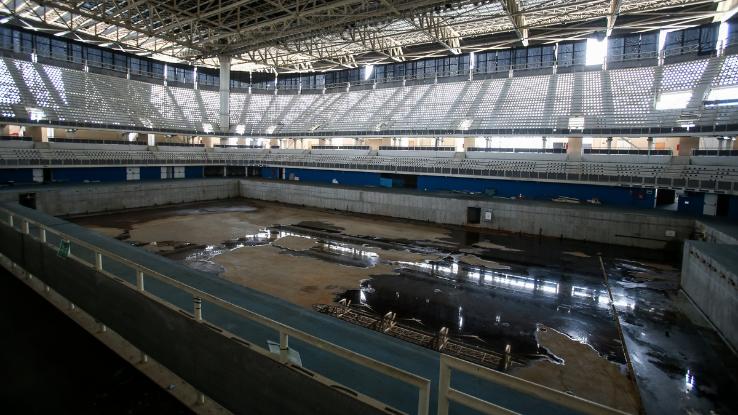
During the Games, Australian swimmers reported that the water in the aquatic middle was thick and cloudy. A nearby diving center was dubbed the "Greenish Monster" by locals. And, after nearly 70 years, Maracanã is still under construction. Only the devastating $13.2 billion cost tag wasn't Rio's but issue.
In 2014, a coin-laundering scandal that implicated numerous politicians came to light, leading to unrest and financial crisis. To make matters worse, an outbreak of the Zika virus and Rio's decades-long inability to treat its raw sewage deterred competitors. Moreover, an estimated 60,000 people lost their homes to brand fashion for the Games.
1976 Montreal Summertime Games
Montreal marked the first fourth dimension Canada hosted the Olympic Games. While Calgary and Vancouver take both since hosted the Wintertime Games, the 1976 consequence in Montreal is the only time Canada has hosted the Summer Games so far. The largest investment was the creation of the Olympic Stadium, which was dubbed the "Big O."
Almost 30 countries, including many African nations, boycotted the Games when the International Olympic Committee (IOC) refused to ban New Zealand in the wake of the nation'south rugby squad defying a sporting embargo. Nonetheless, a whopping half dozen,084 athletes competed in the Montreal Games. All of that investment led to a $one.2 billion price tag.
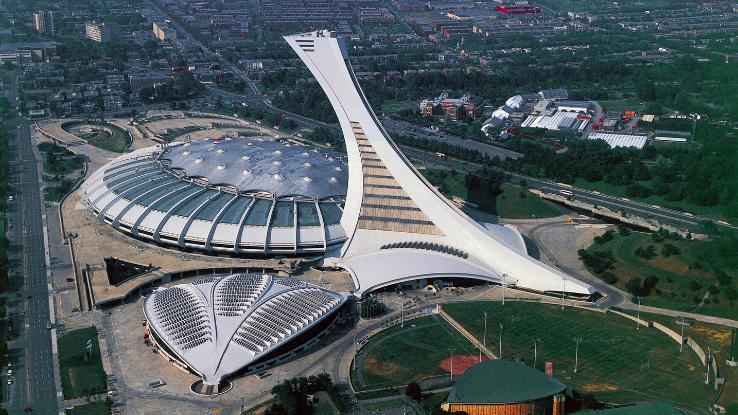
The Games dragged Montreal into a deep debt it didn't pay off until 2006 — 3 decades later. Many of the issues arose from structure delays and a multi-billion dollar corruption scandal. Equally such, locals dubbed the Olympic Stadium the "Large Owe."
Co-ordinate to the Oxford Olympics Written report, the outturn cost of the Montreal Games was an estimated $6.1 billion by 2015 standards — with a record-setting cost overrun at 720 percent. (By comparison, Rio faced a cost overrun of 51 percentage.) The Guardian writes "twoscore years on, no other Olympics has so thoroughly broken a city."
2014 Sochi Wintertime Games
The 2014 Sochi Winter Games are still the virtually expensive Games in Olympic history. Initially, Russia budgeted around $12 billion to transform the pocket-size town into a winter wonderland. Only that figure soon ballooned to a staggering $51 billion, making Sochi'southward upkeep more all of the previous Winter Games combined.
Ahead of Sochi, media outlets wondered if Russia would exist able to complete its massive overhauls to the expanse's infrastructure and multiple mass construction projects on time. A record number of 2.1 billion viewers tuned in — to see both the competitions and the outcome of the costly project.

Alee of the Games, some Circassian organizations objected to the Games beingness held on their bequeathed land when Russia had historically displaced and murdered members of the ethnic grouping. Furthermore, Russian federation's anti-LGBTQ policies raised a huge amount of concern internationally.
A few days before the Games, journalists arrived to observe unpaved roads, unclean water and hotel rooms that were half-finished. Although Sochi is now Russia'due south top resort destination, the uncovering of a state-sponsored doping plan in Russia led the IOC to strip 13 medals from Russian athletes, farther marring the 2014 Games.
1980 Lake Placid Winter Games
The 1980 Winter Games in Lake Placid, New York, are perhaps all-time known for being the backdrop to the U.S. men'due south hockey team's "Miracle on Ice" victory over the Soviet Union. Otherwise, Lake Placid is a modest village upstate, and, at the time, information technology needed to be transformed into an Olympics-level host "city."
In total, Lake Placid spent an estimated $132 million on the Winter Games and went into debt of well-nigh $eight.5 one thousand thousand. Some of the more expensive venues included a $14.9 one thousand thousand Olympic arena and a multi-sport complex for speed skating, bobsled and more that totaled $16 million.

New York Land wasn't necessarily interested in footing the nib for the Winter Games but eventually had no choice when Lake Placid couldn't pay upwards. In exchange, the land nabbed the ownership rights to the village'south ski jumps, field firm and speed-skating rink.
These days, New York residents are nonetheless paying for the upkeep of the venues, which has caused some to advocate for the Olympics returning to Lake Placid — to, you know, utilize these spaces. Nonetheless, the 1980 Games were a financial mess, and, stranger yet, the state's 2026 proposal suggested using Yankee Stadium — located five hours abroad in the Bronx — for some events.
1994 Lillehammer Winter Games
The northernmost city to e'er host an Olympic Games remains Lillehammer, a tiny ski town in Kingdom of norway. The 1994 Games also marked the first time the Wintertime Games operated under an Olympic Truce; despite ongoing wars, the former Federal Republic of Yugoslavia was allowed to compete.
Notably, the town wanted to host the beginning "greenish" Games, eager to make sure venues were integrated properly with the surrounding environment. For example, an ice rink was formed out of a blasted-out cave, and special attention was paid to how the venue would bear on nearby species and migratory bird populations.

However, it'southward not easy existence green. And information technology'south not cheap either. The various structure projects — buildings and venues made of organic materials — totaled over $ane billion. The Oxford Olympics Study noted that the outturn price of the Games came in at $2.2 billion with a toll overrun at 277 percent.
Contributing merely $289 million, Lillehammer called upon the Norwegian regime for some financial aid. These days, the Olympic spirit yet burns brightly in Lillehammer, which hosted the Youth Olympics in 2015 and continues to welcome Olympics lovers to its old venues and remarkable ski resorts.
1984 Los Angeles Summer Games
Los Angeles hosted the Olympics for the first time in 1932 and did so again in 1984. In response to the American-led boycott of the 1980 Summer Games in Moscow, a total of 14 countries, including the Soviet Union and East Frg, did not participate.
Thanks to the '32 Games, L.A. already had a few Olympic-sized venues upwardly its sleeve — the Los Angeles Memorial Coliseum and the Rose Bowl. The '84 Games also coincided with the expansion of professional sports teams in the L.A. surface area, which helped defray costs and ensure that stadiums wouldn't be left to rot after.
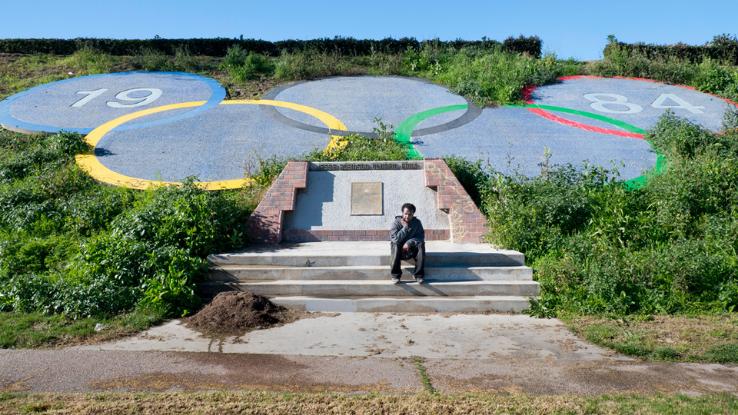
When adjusted for inflation, The Oxford Olympics Study reports that the outturn price of the Los Angeles 1984 Summertime Olympics was $719 million. Thanks to low construction costs and private funding, Fifty.A. found a way to make the costly event work — at least fiscally speaking.
In fact, Fifty.A. hosted one of the most financially successful Summer Games on record. When adjusted for inflation, television rights, commercial sponsorship and ticket sales resulted in simply nether $ane billion in revenue. Moreover, nearly of the venues built for the '84 Games are nevertheless used today for both games and concerts.
1996 Atlanta Summer Games
The 1996 Games in Atlanta were the 4th Summer Olympics to take place in the U.South. The Games also marked the centennial of the first modern Olympics, which had been held in Athens in 1896.
Prior to the Games, Atlanta was criticized for overly commercializing the Olympics. But by post-obit Los Angeles' design, Atlanta turned the Games into a money maker. The budget came in at $ane.7 billion, with the government footing the bill for security measures and roughly $500 meg of taxpayer money being used to gear up roads and build Centennial Olympic Park.
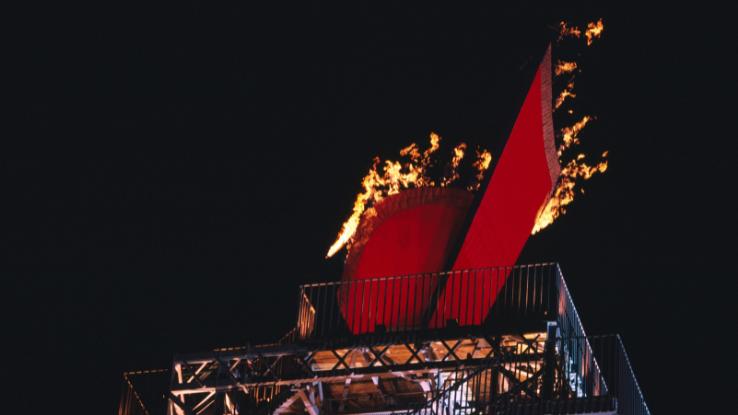
Atlanta prepared for the Olympics for about half dozen years, which created eighty,000 jobs and had an economical impact of roughly $5.14 billion. Additionally, ticket sales, sponsorship rights and the sale of domestic broadcast rights drew in a combined total of over $ten million.
While two million visitors drove Atlanta's tourism and helped plough the metropolis into a tourist destination long after, the success of the Games was somewhat overshadowed past the tragic bombings in Olympic Park. A pipe bomb, planted by Eric Robert Rudolph, injured 111 people and is connected to at least two deaths.
How Does Tokyo 2020 Compare?
Amongst the ongoing COVID-19 pandemic, the International Olympic Commission (IOC) and the Japanese regime appear the postponement of the Summer Games back in March 2020. While the "New Commencement Tokyo 2020" committee has constitute a path forrad, forging ahead came with a ton of new postponement- and pandemic-related costs. Not to mention, in the terminal 15 years, millions spent have easily turned into several billion, and, every four years, the demand to print the world looms even larger.
Co-ordinate to Business Insider, the toll of the Tokyo Olympics has ballooned to double that of the official $12.half-dozen billion planned cost dorsum in 2020. In the wake of the postponement, that toll has reached effectually $15.4 billion — though, as reported past Sports Illustrated, "Government audits advise the number is closer to $25 billion."
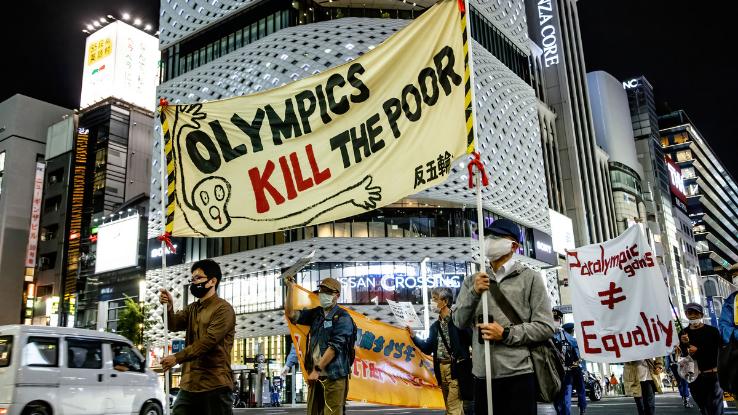
The Anti-Olympics Movement That's Gaining Momentum
Equally we've written well-nigh in our coverage of Tokyo 2020, a resounding 80 pct of Japanese citizens surveyed believed that the Games wouldn't happen — or shouldn't happen. While some of this sentiment stems from COVID-19-related concerns, much of it is likewise tied to the growing sentiment that the Olympic Games, as they pan out at present, are harmful. Not but does the infrastructure accept a huge price on hosts' environments, but the Games finish up contributing to impoverishment and the displacement of local people.
Just Tokyo protestors aren't alone. Even in L.A., where past Games have been dubbed surprise "successes" financially, folks are rightfully critical of the metropolis'south Olympic bid. In fact, in Fifty.A., the would-exist-site of the 2028 Summer Games, NOlympics LA was launched past the Housing & Homelessness Committee of the Los Angeles chapter of the Democratic Socialists of America in 2017. Like Tokyo protestors, the 50.A.-based organizers believe that the Olympic Games destroy local communities.
While the Olympics are meant to exist a source of unity, inspiration and achievement, change is clearly needed. For starters, it's important to be aware of the costs — and the fact that those costs are more than just dollars spent.
Source: https://www.askmoney.com/taxes/cost-olympics?utm_content=params%3Ao%3D1465803%26ad%3DdirN%26qo%3DserpIndex
0 Response to "If You Uninstall a Game That You Payed for on Origin Can You Download It for Free Again"
ارسال یک نظر